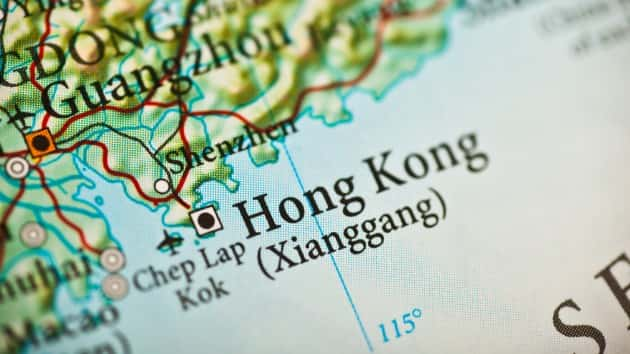
pawel.gaul/iStock
 pawel.gaul/iStock(HONG KONG) — Thousands took to the streets in Hong Kong to protest against the government’s proposal to change an extradition law, which would allow individuals to be sent to mainland China for trial.
pawel.gaul/iStock(HONG KONG) — Thousands took to the streets in Hong Kong to protest against the government’s proposal to change an extradition law, which would allow individuals to be sent to mainland China for trial.
The largest demonstration in the city since the 2014 Umbrella Movement, the organizers said about 130,000 attended the protest on Sunday, while the police estimated a turnout of 22,000, according to Civil Human Rights Front, which organized the protest.
The amendment proposal comes after Chan Tong-kai, 20, a citizen of Hong Kong, admitted to killing his girlfriend in Taiwan in last year. Chan, who has since returned to Hong Kong, has only been charged in Hong Kong for money laundering from using his murdered girlfriend’s stolen credit card, according to Hong Kong Free Press. The Taiwanese government has urged Hong Kong to send Chan back for trial, but the Hong Kong government refused, according to the South China Morning Post.
Although the extradition law amendment is not China-specific, it is universal — meaning that any country, including China, can request extradition of an individual to their home country from Hong Kong for trial. Many fear that China could use the law to arrest political dissidents.
On Sunday, many demonstrators were seen holding yellow umbrellas, bringing back the famous symbol of the 2014 protest that called for universal suffrage for the city’s highest office, chief executive. Currently, only 1,200 committee members who are appointed by the Central People’s Government of China are eligible to cast their ballot.
Hong Kong is a “Special Administrative Region” that follows the “one country, two systems” principle, established after the island’s 1997 handover to China after 156 years under British sovereignty. The system allows the city to operate with a high level of autonomy including having its own legislative council, education, currency, border control and stock market.
Many protestors are concerned that the proposed extradition amendment would eradicate the integrity of the rule of law in the city.
“There’s no judicial in mainland China, the party is above the courts,” one protestor told the local news outlet TVB.
The Hong Kong Bar Association has expressed concerns over the amendment, saying that it would “lower the bar for securing the liberty and security persons who may be subject of requests from any other territory or jurisdiction, including an authoritarian or totalitarian regime.”
The American Chamber of Commerce in Hong Kong also condemned the measure.
“We strongly believe that the proposed arrangements will reduce the appeal of Hong Kong to international companies considering Hong Kong as a base for regional operations,” a spokesperson said.
In October, China unveiled the world’s longest sea bridge between Hong Kong and the mainland, as part of a wider strategy to bring the island into its sphere of influence.
“The more Hong Kong is integrated into mainland China, the less is there a case for it to be given very special treatment,” Dr. Winnie King, a specialist in Chinese international political economy at the University of Bristol, told ABC News.
The Hong Kong Police Department did not immediately respond to ABC News’ request for comment.
Copyright © 2019, ABC Radio. All rights reserved.